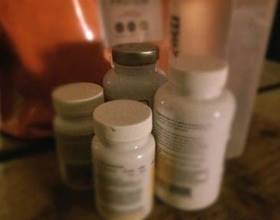
Protein Power
What is protein and where do we normally get it?
Protein is a collection of organic compounds called amino acids, combined into long chains. When we eat protein sources, the body breaks them down into the individual amino acids, which are then recombined or used individually throughout the body. Almost every function within the body requires proteins and unlike carbohydrates or fats, we can’t really store amino acids – so we need a daily intake to make sure that the full pool of amino acids is available. Protein is in fact, the second most abundant nutrient in the body (after water).
It’s worth noting that; whilst we can make some of the amino acids ourselves, within the body, there are 9 that we cannot make (histidine, isoleucine, leucine, lysine, methionine, phenylalanine, threonine, tryptophan, and valine). These are known as Essential Amino Acids and can only be obtained from food.
We need 22 amino acids in total but protein sources vary in how much of each amino acid they have. Protein sources that include all 9 essential amino acids are known as ‘complete proteins’. These include meat, dairy, fish, eggs, soy, rice and pea proteins. A protein source that is low, or lacking, in any of the 9 essential amino acids is called an ‘incomplete protein’. Ideally we need to consume both types to make sure we have enough of all the amino acids. But almost all foods we consume contain some protein, so as long as you have a well-balanced and varied diet you should be fine.
How does whey protein fit in here? Well, whey protein, much loved amongst budding bodybuilders and strength athletes, is a complete protein and contains all 22 amino acids – but more importantly, it is highly bioavailable. This means that our bodies can absorb and use it very quickly after consuming it. In fact, it is the most highly bioavailable food source of protein there is, with a Biological Value (BV) of 104. (The next highest is whole eggs, with a BV of 100)
What is protein used for?
Almost every function within the human body requires proteins to work properly. If we’re lacking in any of the amino acids, then certain functions will simply stop until the missing amino acid becomes available.
The most important functions of protein are;
- Repair and maintenance (ie repairing and building muscles damaged by exercise)
- Creating some hormones (ie: Insulin)
- Creating enzymes (enzymes are critical for just about every chemical process in the body)
- Transporting and storing other molecules (ie: haemoglobin – a protein that transports oxygen)
- Creating antibodies
Additionally; we can use protein as an energy source if needed, through a couple of different chemical pathways. It’s not ideal and it’s a last resort as far as the body is concerned (because doing it uses valuable energy and also reduces the store of available amino acids), but it is possible.
So, hopefully by you’ve now got a feel for just how important protein is in your diet!
How much protein do you really need?
The general consensus amongst doctors and sports scientists is that we need anywhere from 0.8g to 2g, per kilo bodyweight, per day. As you may have realised, that’s a pretty wide range! For someone weighing 63.5kg (about 10 stone) that’s anywhere from 51 – 127 grams of protein per day. To put that in perspective in terms of food intake; 100g of chicken breast contains roughly 30g of protein, tofu about 48g, soy protein isolate about 80g and whey protein about 85-90g.
So as you can see; theoretically you don’t need a huge amount of food to reach your protein requirements for the day. However………..it’s not quite that simple (is it ever?). The figures for how much we need are based on numerous, very high quality, studies that examined a wide range of people under a wide range of different dietary requirements (athletes, elderly people, young people etc) and if you look at the studies, you’ll notice that there are a wide range of variables that can affect what an individual’s protein requirements are at any given time. Like all dietary requirements, it can vary from day to day, depending (at least) on how old, how active and how fit and healthy you are.
The simplest way to look at it, which should work for just about everyone, is this; aim for between 1-1.5g of complete protein, per kg bodyweight, every day. That should ensure you get all the amino acids you need. Try and get most, if not all, of this from your normal diet and use several different protein sources.
So do you really need protein supplements? Well; they’re a great source of complete protein, highly bioavailable and easy to consume, especially during or after training. Having a protein drink after training will give your body not just a full range of amino acids to help with repairing and strengthening your beleaguered muscles, but it will also help hydrate you. Plus, if you’re looking to control your calorie intake; protein will satisfy your hunger far better than sweet or fatty foods.
But do you *need* supplements? If you have a properly balanced diet then..no. The clue is in the name, they’re “supplements” to a proper diet. But if you’re training hard and regularly they could be a valuable addition to your training regime as they can help you recover faster. That said, I would recommend that you focus more on your overall diet and aim for no more than 1-2 protein drinks per day. If your diet is good, then any more than that is going to be a waste of money and if your diet isn’t good enough, you’ll likely be missing a whole lot more than just protein. But we’ll come to that in a later post…
Over the rest of this series on nutrition for climbers, we'll take a look at fats, carbohydrates and sports supplements. Then we'll show you how to put it all together into nutrition plans that work for you, both everyday and on those fully psyched crag days.
